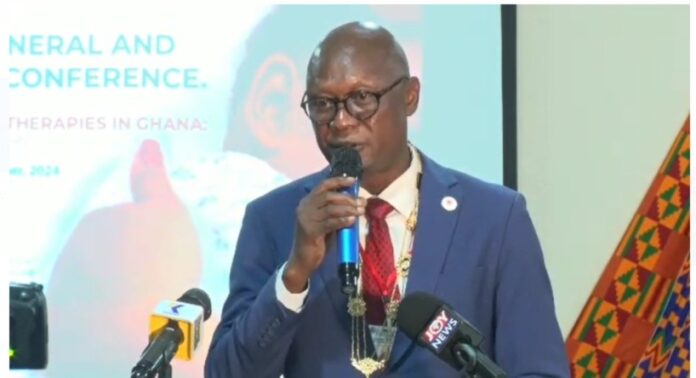We’re keenly awaiting the enactment of the ART Regulation bill – Fertility Society of Ghana tells A-G
A regulatory bill, now with the Attorney-General’s Department, will ensure safer practices and strict quality controls in fertility treatments.
- Advertisement -
The Fertility Society of Ghana (FERSOG) is appealing for the early enactment of the Assisted Reproductive Technology (ART) Regulation Bill aimed at addressing infertility care in Ghana.
Infertility treatments, In-Vitro Fertilization (IVF) in Ghana, is affected by safety and specialists’ concerns, cost of services, lack of education and access.
- Advertisement -
A regulatory bill, now with the Attorney-General’s Department, will ensure safer practices and strict quality controls in fertility treatments.
- Advertisement -
The World Health Organization (WHO) has declared infertility to be one of the leading causes of disability.
Childless women can be physically, verbally and psychologically abused, especially in developing countries like Ghana.
Some of them go every extent to find remedy for their predicament, due to family and societal pressures.
This situation has influenced the emergence of Assisted Reproductive Technologies (ART) and procedures to provide surgical help to infertile couples.
The ART includes all fertility treatments including surgically removing eggs from a woman’s ovaries, combining them with sperm in the laboratory, and returning them to the woman’s body or donating them to another woman.
The Fertility Society of Ghana is seeking to minimize complications including Ovarian Hyper stimulation Syndrome (OHSS) and reduce risks associated with multiple pregnancies and premature births through an Assisted Reproductive Technology (ART) Regulation Bill.
President of the Fertility Society of Ghana, Dr Rudolph K. Agageba, says the bill, once enacted, will provide a framework to enhance the safety and efficacy of fertility care across the country.
“Notable among the achievements of the society since its birth are spearheading work together with other stakeholders towards urgently needed regulatory policy of ART, which is almost at the point of completion.
- Advertisement -
“Safety remains a major concern when it comes to our ART services. OHSS a serious iatrogenic complication, multiple pregnancies and prematurity maintaining strict quality control measures in our IVF laboratories to minimize errors. We are keenly awaiting the enactment of the ART Regulation bill currently in its final draft stages that will regulate all the work that we do,” he said.
The FERSOG President was speaking at the 7th Annual General and Scientific Conference in Kumasi, on the theme: “Safety of ART Therapies in Ghana: Role of Stakeholders”.
Currently, there are over 30 assisted conception centres with locations in Accra, Tema, Kumasi and Takoradi.
There is a record of an average of about 100-200 cycles annually per center with about 40% Live Birth Rate (LBR) similar to international standards.
The ART techniques are still not available to majority of infertile couples because of its accessibility.
The society is calling for more public fertility centres and the coverage of fertility treatment by the National Health Insurance Scheme.
Dr Edem Hiadzi is the immediate past president of Fertility Society of Ghana.
“There has been an increase in the number of IVF clinics in Ghana, all of which are private and have been offering IVF and other high-tech assisted reproductive technologies. In the coming years as a society, FERSOG must step efforts in overcoming all the remaining challenges. We must encourage government to set up public ART centres to make it more affordable and accessible to the population.
“Infertility is a disease; we must therefore advocate government to include basic infertility evaluation and treatment in the National Health Insurance Scheme just like it has been done for other disease conditions. We must work hard to increase awareness among the public on fertility related issues such as the decline in fertility with age, seeking treatment,” he said.
Source:onuaonline.com
- Advertisement -



